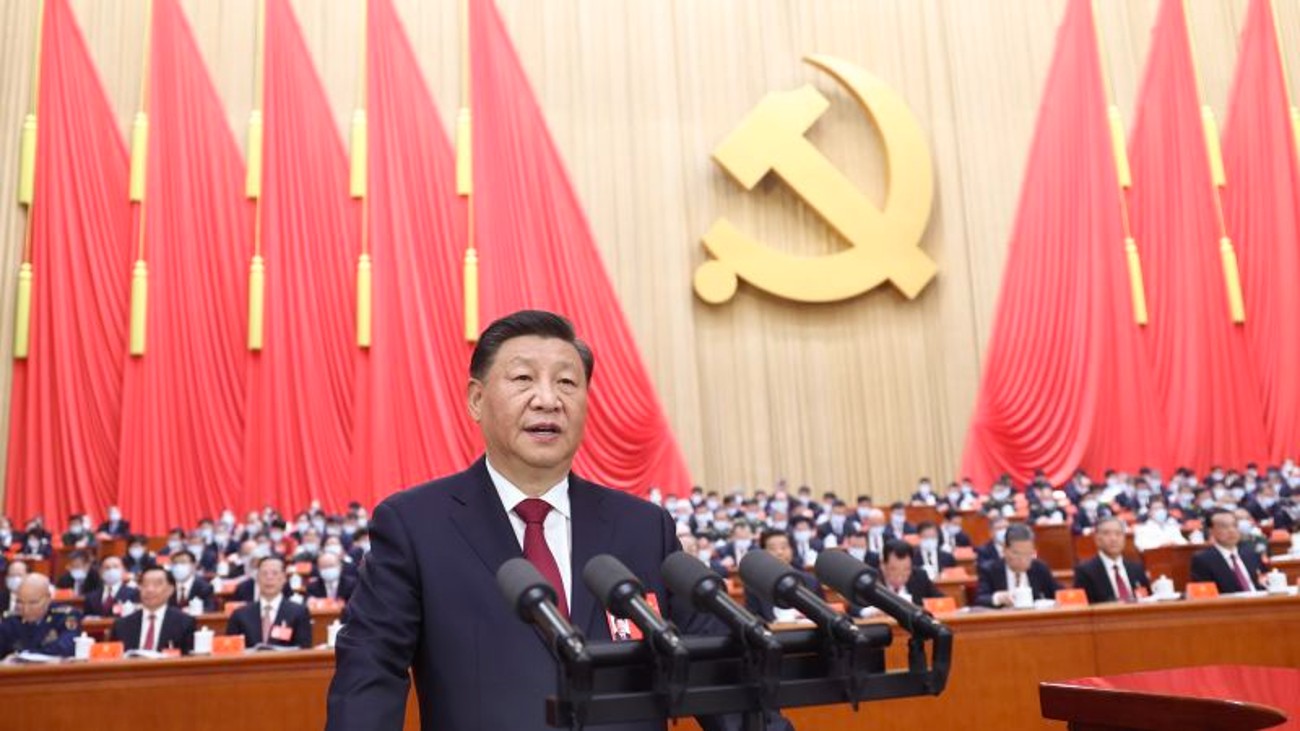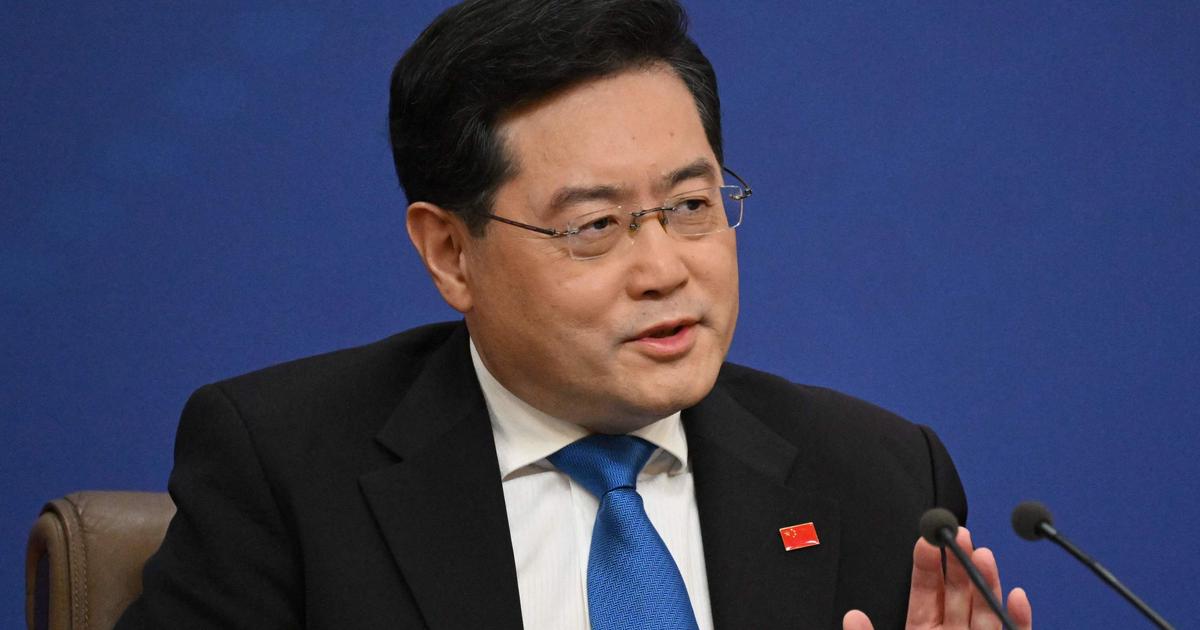From Mao to Xi Jinping: the history of China's presidents 4:01
(CNN) --
China's top leader Xi Jinping is set to begin a norm-shattering third term with an even greater concentration of power, after ousting top party leaders from the top governing body to make room for their own allies.
After a week, the Communist Party Congress concluded on Saturday with the arrival of a new Central Committee — the party's 200-member central leadership — that will select a new list of top leaders on Sunday.
Premier Li Keqiang and Wang Yang, neither of whom appear to have close ties to Xi, are not part of the new Central Committee, meaning they have left China's top governing body and will be retiring entirely.
Xi is expected to be appointed general secretary of the party for another five years on Sunday, paving the way for a possible government for life.
At 69, he passed the informal retirement age of 68 for top party leaders.
Xi's name is included in the list of new members of the Central Committee.
Former Chinese leader Hu Jintao unexpectedly leaves the room where the Chinese Communist Party Congress was taking place
Li and Wang are 67 and eligible to serve another five years on the party's top Politburo Standing Committee under current retirement rules.
However, they are withdrawing early from the apex of party power, breaking with precedent in recent decades.
advertising
Li, China's second-ranking leader, is due to step down in March as prime minister under the country's constitution, which only allows the prime minister to serve two terms.
Wang, who heads the Chinese People's Political Consultative Conference, was seen by some analysts as a possible successor to Li.
His sudden departure opens up two more places on the Standing Committee for Xi to fill in with his own allies and protégés.
Two other members of the body are past retirement age and ready to resign.
A standing committee lineup that fills the body with Xi loyalists “would change the power-sharing arrangement that China has had since the late 1970s,” according to Victor Shih, an expert on China politics at the University of California, San Diego.
Xi Jinping is about to assume a third term in China
“Informally, Xi Jinping's powers (already) are extremely great, as he restructured the military and cleansed the security apparatus of other influences.
But formally speaking of the Politburo Standing Committee, even up to this point, there was a balance of power where officials who are historically unaffiliated still had their seats, and that can end," Shih said.
He added that such an outcome could create an "unhealthy dynamic" in which Xi will be surrounded by people who are not used to giving critical policy comments.
Chinese political analysts have pointed to several Xi protégés or allies as possible candidates for promotion.
They include Chongqing party chief Chen Min'er, 62, one of Xi's closest longtime allies and protégés;
Ding Xuexiang, 60, who heads the Communist Party General Office, a post similar to Xi's chief of staff;
and Shanghai party chief Li Qiang, 63, who faced a fierce public backlash earlier this year over the city's painful two-month Covid lockdown.
Eyes will also be on Hu Chunhua, 59, a deputy prime minister outside Xi's orbit who had previously been touted as one of his possible successors.
In 2017, he was denied promotion to the Standing Committee in 2017, halting his career as Xi's successor.
Former leader Hu Jintao leaves Congress unexpectedly
The Chinese Communist Party's five-year national congress is a carefully choreographed political theater, meant to showcase the party's unity and legitimacy.
However, a dramatic moment unfolded during Saturday's closing ceremony at the Great Hall of the People when former top leader Hu Jintao was unexpectedly removed from the event.
Hu, 79, was sitting in a prominent position at the table at the front of the stage, right next to his successor Xi, when he was approached by a staff member, according to pictures and video of the meeting.
The moment in which the former Chinese leader, Hu Jintao, leaves the place where the closure of the Chinese Communist Party takes place.
The circumstances surrounding his departure are unclear, but he initially seemed reluctant to leave.
In recent years, a deterioration of his health condition has been observed.
CNN was taken off the air in China when it reported on the episode of Hu's departure from Congress.
Due to the opacity of Chinese elite politics, the party is unlikely to offer a public explanation for Hu's sudden exit from the scene.
The dramatic moment was not reported in any Chinese media, nor discussed on the country's social media.
But it has unleashed a firestorm of speculation abroad.
The party congress fell short of expectations among some China pundits that Xi might be anointed with new party titles, new honors, or that his political ideology—already embodied in the party charter—be formally anointed as "Xi Jinping Thought", something that would elevate him to the status of Mao Zedong, the founding father of Communist China.
But the party's charter has become littered with Xi's policies and slogans, including phrases that cement his "central" status in the central leadership and throughout the party.
The amendment to the party's statutes, approved by nearly 2,300 delegates in a ceremonial vote, also includes one of Xi's signature phrases: "Fight."
Xi uses the term when he talks about the challenges and perceived threats facing the party and the country, both at home and abroad.
"Dare to fight, dare to win, bury your heads and work hard, be determined to push forward," Xi told delegates during his closing remarks.
The party's charter was also changed to "resolutely oppose and contain Taiwan independence."
The Communist Party claims the autonomous democratic island as its territory, even though it has never controlled it.
At the closing ceremony, the delegates also sealed their approval of the work report of the 19th Party Central Committee, the summary of which was delivered by Xi last Sunday at the opening of the congress.
Chinese Communist Party Congress
The working report praised Xi's leadership, saying the party with him at the center had managed to lead China through "a grim and complex international situation" and in the face of "enormous risks and challenges one after another."
Steve Tsang, director of the University of London's SOAS Institute on China, said that unlike the previous conference, where Xi outlined a vision for China and a rough roadmap to achieve that vision, this time Xi simply reiterated the importance of continue on the current path.
This even when the country faces headwinds.
“The main reason for the headwinds is the evil foreign powers, particularly the United States, which is trying to keep China at bay, so it demanded the people of China to hold tighter the nationalist flag flown by the CCP and directed by none other than the 'greatest' leader of the CCP, Xi Jinping,” he said.
"This is good news for Xi, but bad news for China and the rest of the world," he added.
Communist Party Congress Xi Jinping








